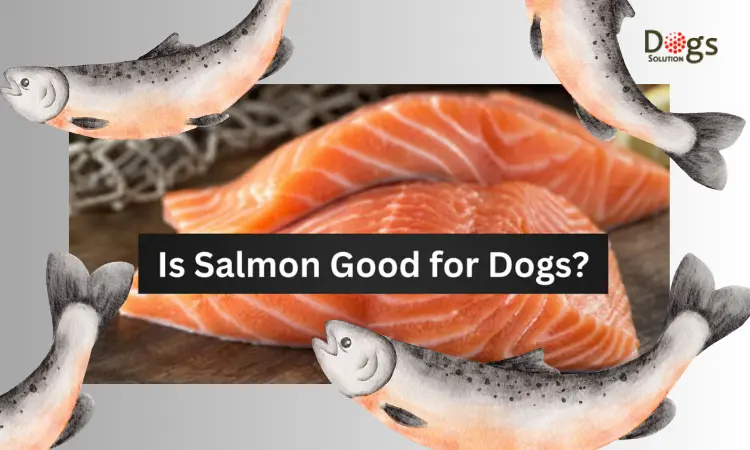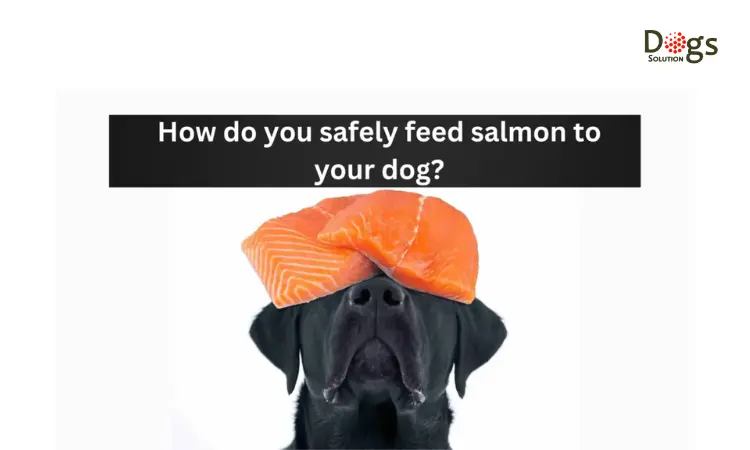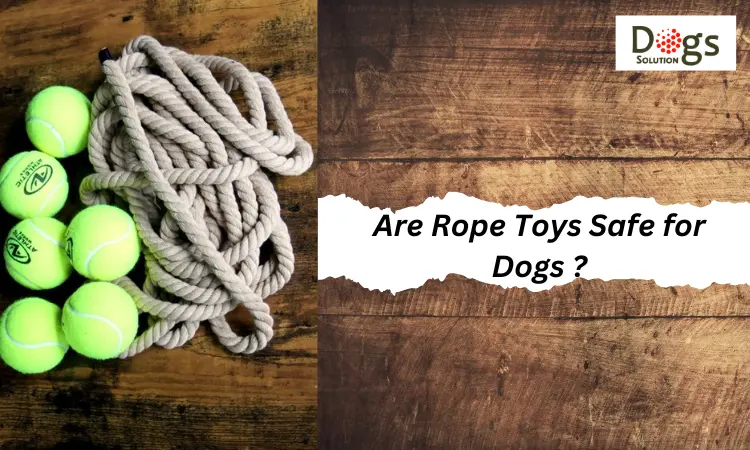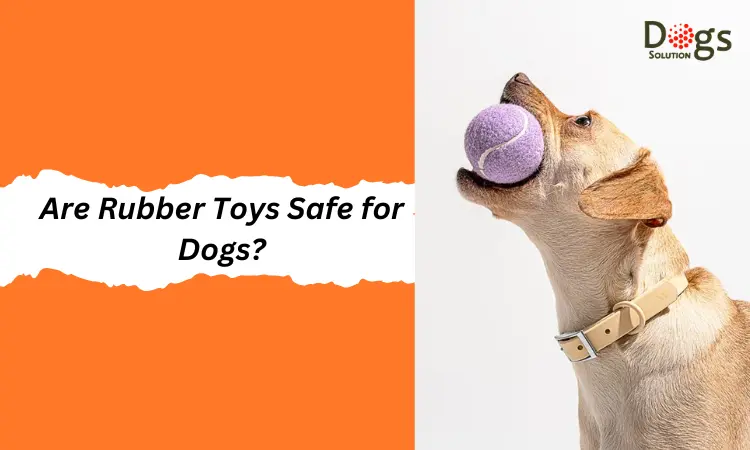Dogs are curious animals that always want to know what humans are eating. When your dog runs to you after you’ve prepared a delicious salmon supper, you’re undoubtedly asking, “Can dogs eat salmon?” To help you decide if you may enjoy this delectable fish with your pet, we’ve put up a guide on dogs eating salmon. See what you need to know by reading on!
Do Dogs Like Salmon?
Dogs often eat salmon and a variety of other fish varieties as food. Since it is an excellent meat that provides essential fatty acids, vitamins, minerals, and protein, it could be found in dog diets that have been designed. As a result, it is a fantastic substitute for conventional beef and chicken. Although every dog has different tastes, most canines love eating salmon dog food and may even appreciate raw salmon cooked at home.
Is Salmon Good for Dogs?
Adding salmon to your dog’s diet may be highly beneficial, and many premium dog food products incorporate it as a source of protein. The U.S. Food and Drug Administration (FDA) states that salmon has meager amounts of mercury, unlike some fish like tuna.

Thus, you may add extra flavor and nutrients to your dog’s bowl by adding a small amount of cooked, simple salmon. Giving salmon to your dog has many nutritional advantages, including:
Omega-3 fatty acids:
Omega-3 fatty acids, found in salmon, are excellent for the health of a dog’s skin and hair and can even help dogs with joint problems or other inflammatory conditions move more quickly.
Protein:
Salmon is an excellent source of healthy fats and protein, both of which aid in the development and maintenance of muscle in your dog. Salmon is an excellent protein alternative for high-quality dog diets, especially for dogs with allergies to other proteins like chicken, beef, or lamb.
Minerals and vitamins:
B vitamins can also be found in abundance in salmon. Vitamin B12 is one mineral essential for maintaining your dog’s brain and nervous system health, and salmon is high in B12.
Can Dogs Eat Salmon Raw?
Although salmon has several health advantages for dogs, pet owners should exercise caution while giving their dogs raw or undercooked salmon. Giving raw salmon to your dog might cause serious health problems.
A parasite known to cause salmon poisoning illness, which can be lethal for dogs if left untreated, can be found in raw or undercooked salmon. I’m sorry, dogs who love sushi! Fish that has been baked, broiled, grilled, or boiled is far safer for dogs to consume.
Give your veterinarian a call so they can assist you in deciding what to do if your dog eats raw salmon or any other type of raw seafood. you can get guidance about; how much chicken to feed your dog.
Can Dogs Eat Salmon Skin?
If you’ve prepared a delicious baked salmon meal and you don’t mind the skin, feel free to give your dog a taste of the leftovers. Dogs may safely consume the skin of salmon. Just make sure the fish is cooked through and isn’t seasoned with anything that might poison dogs, such as butter, garlic, or onions.
If you don’t like the salmon skin, scraping it off might be a terrific way to offer Fido more nutrients instead of dumping it in the compost. Salmon skin has an even higher concentration of beneficial omega-3 fatty acids than the flesh of the fish.
Therefore, if you’re not a fan of the skin, you two could benefit from adding a tiny quantity of your leftovers to Fido’s meal. Just keep in mind to give your dog little portions of salmon skin.
How do you safely feed salmon to your dog?
Dogs can safely consume salmon as a snack, but that doesn’t imply you should grill the whole fish for supper this evening! Starting with little amounts of salmon as a reward is a brilliant idea so that your dog’s body can get used to the new diet. You can then progressively increase the quantity. By doing this, they can prevent negative consequences that may arise from your dog’s typical menu adjustments, such as diarrhea or upset stomach.

Your dog should only be fed cooked, fresh salmon devoid of bones, as they can cause choking hazards. Since many standard components are unsafe for dogs to eat, avoid adding any flavors or other additives.
Dogs may also consume canned salmon, but you should be mindful of the salt content. Although salmon packed in oil is not as healthy for dogs as salmon canned in water, be sure to wash the canned salmon well before adding it to your dog’s meal to get rid of any extra salt or oil from the canning process.
How Much Salmon Can Dogs Eat?
Small portions of cooked, fresh, boneless salmon given to dogs sometimes as a treat are thought to be harmless and even beneficial. As with any new dish, though, go slowly at first! Regarding your dog’s health, it is always advisable to keep an eye on the side of caution.
Based on their weight, the following are some basic recommendations for how much salmon is safe for dogs to eat:
Extra-small dog (2–20 pounds):
One to two ounces of prepared, fresh, boneless salmon each week
Small dog (21–30 pounds):
1-2 ounces of cooked, fresh, boneless fish each week
Dogs of medium size (31–50 pounds):
Three to four ounces of prepared, fresh, boneless salmon each week
Huge canines weighing 51–90 pounds:
Four to six ounces of prepared, fresh, boneless fish each week
Large dogs (weight greater than 90 pounds):
Six to eight ounces of prepared, fresh, boneless salmon each week
Can Dogs Have Smoked Salmon?
Your dog shouldn’t be given smoked salmon. A lot of salt is frequently used in the curing process for smoked salmon. Although your dog’s diet should include some salt, too much can be harmful. It may induce salt toxicity or dehydrate your dog. Additionally, some smoked salmon has added sugar. And then there’s the act of smoking. If you will feed salmon, make sure you purchase it cold-smoked. Smoking, when heated, can produce polycyclic aromatic hydrocarbons, or PAHs, which are hazardous compounds. Make sure your dog has enough water if he does consume smoked salmon. If the quantity is high, watch for signs of salt poisoning.
- Death
- Coma
- disorientation
- intense thirst and urination
- elevated heart rate
- Vomiting
- diarrhoea
- Tremors
- Seizures
How Much Salmon Is Too Much?
A varied diet requires a range of foods. Therefore, dogs should never consume only one unless it’s a specially prepared dog meal. Because salmon contains toxins, an excess of it can also be harmful, whether it comes from wild or farm-raised sources. Large-scale ingestion of mercury, PCBs, and dioxin can result in significant health issues. Fortunately, salmon is considered a low-mercury species, so feeding cooked salmon to your dog or yourself many times a week shouldn’t be a reason for concern. However, if your dog isn’t accustomed to eating salmon, the dietary shift may cause vomiting and diarrhea. These symptoms usually disappear once your dog adjusts to the new meal.
Conclusion:
The answer to “Can dogs eat salmon?” is “yes.” When included in a balanced and healthful diet, salmon prepared correctly benefits dogs and can offer several advantages.
Don’t give dogs canned, raw, or smoked fish. These may result in vomiting and upset stomach in your pet. To ensure that salmon is safe for dogs, always cook it carefully. Salmon should be given to dogs in moderation, as with any new meal. Before making any dietary changes for your dog, you should also speak with your veterinarian. Read our other blog if you want to know; can dogs eat watermelon?
How much cooked salmon can I give my dog?
Please feed little dogs no more than one spoonful of properly cooked salmon at a time. You may use three to five teaspoons or a complete fillet, depending on your giant dog’s size, exercise level, and nutritional requirements.
Can cooking salmon upset dogs’ stomachs?
Your pet may exhibit allergy symptoms such as upset stomach, vomiting, or salmon poisoning if the salmon is undercooked or has an allergic reaction.
How should salmon be cooked for dogs?
Before giving your canine the salmon, you can bake, grill, or steam it. Don’t add any seasonings, condiments, or spices.
Is raw or cooked salmon better for dogs?
Don’t ever give dogs raw salmon. It is preferable because cooked salmon is free of germs and other diseases.
Can Dogs Have Canned Salmon?
Your dog won’t suffer from canned salmon, but the canning process might raise cholesterol and degrade fatty acids. Canned salmon in water, not oil, is a safe option in a pinch, but it’s not the healthiest.






